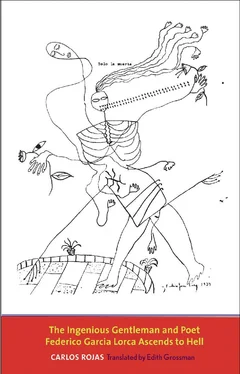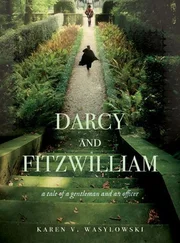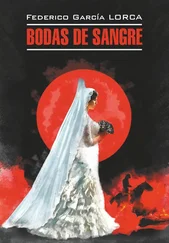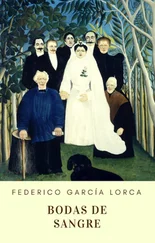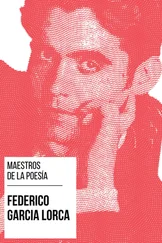“I didn’t ask you for it.”
“I know, but supposing you had, as the man with the tape recorder did not refrain from doing, I’d answer as I answered him. I believe his shooting was reprehensible, because as a practicing, pious Christian, I condemn the death of man at the hands of man. I don’t care if the victim’s red, white, or polka-dotted. I’m an enemy of violence no matter where it comes from. On the other hand, if you ask what I think of his death in relation to his work … ”
“I didn’t ask you about that either.”
“I’ll tell you anyway, with my usual sincerity, that if the death of the man was a sin, the death of the writer was a benefit to him because at the end he was producing only nonsense and blasphemy; may God have forgiven him for that at the hour of judgment. Without changing the subject, but also without biting my tongue, I’ll add that I don’t understand the prestige he enjoys today, even greater abroad than in this country, I believe. Why so much interest in what he did and what he wrote? It must be because the poor man died the way he did, that’s what I tell myself, because if he had survived nobody would remember him.”
“Not the bulls, or the fig trees, or the horses, or the ants in his house,” said the man with the cut face, looking into Ruiz Alonso’s eyes for the first time.
“That’s what he says, may he rest in peace, in his elegy to Sánchez Mejías; I understand very little of it though I remember almost the whole poem,” replied Ruiz Alonso. “You see now that a poor typesetter also has a right to memory, though memories are sometimes his curse. Why don’t we all forgive one another for the sin of being born? Why don’t we let the dead bury the dead, as Our Lord Jesus Christ wanted? Why do you, Señor Vasigli, a Spaniard though your name sounds Italian, insist on writing a book about that unhappy man instead of dedicating a Mass for his soul?”
“Vasari, Sandro Vasari.”
“Fine, Vasari. Why do you keep returning, Señor Vasari, to those times, when you must have been a boy, to tell us about the life or death of an unfortunate who had so many crosses to carry, from his homosexuality to his shooting and including his wasted talent? Better to let him rest in peace, wherever he may be rotting, waiting for the Final Judgment.”
“I don’t want to write a book, Señor Ruiz Alonso, but a dream.”
“A dream?”
“The one I had on April 1st of this year. I dreamed about hell and saw it as an endless spiral, along which a carpeted corridor ascended.” The man with the scar folded down the last written page in his notebook and drew a view of the spiral on the next one. Three equidistant lines crossed it, which he pointed at abstractedly with the tip of his pen. “Some theaters open onto the corridor, and a dead person corresponds to each of them. And in one of those theaters, the man you arrested and, according to what they say, also denounced, is waiting for judgment … ”
“I didn’t denounce anybody! I’m not an informer!”
“Be that as it may. In my dream, the man you arrested evoked fragments of his past in pieces and flashes. Those memories materialized immediately and were represented on the stage of his theater. From his orchestra seat, he seemed to watch and see them from a bird’s-eye view, becoming aware of everything in my nightmare in the sight of God. I said to myself: ‘This is impossible, you went crazy while you were dreaming.’ And then: ‘While you were dreaming you went to hell.’ Parts of that nightmare, perhaps the most terrible ones, disappeared when I woke. As you said, Señor Ruiz Alonso, the most terrifying memories become muddied with time. Dreams too, as the hours pass. In this way, forgetting preserves our sanity. Still, I remember having seen him while he was still a boy, on a stage transformed into the Carriage Drive in the Retiro. Another boy his age was with him and two little girls, perhaps younger than the boys; they were clearly his siblings. Their parents, dressed in their Sunday best and very provincial, proudly encouraged them. They all commented frequently on this, the children’s first trip to Madrid, capital of the kingdom. An open carriage passed where Machaquito and Vicente Pastor were talking and laughing. They both wore Panama hats and high boots that buttoned with a hook. Vicente Pastor combined a white silk neckerchief with a three-looped watch chain across his chest and a carnation in his buttonhole. The carnation, very red and full, seemed to have just opened on that luminous morning.”
I was deceived when I thought Ruiz Alonso would take him for a madman. On the contrary, the fatigue that at first had thickened his voice was completely gone now. Gradually his spine straightened beneath his weary shoulders as he listened attentively to Sandro Vasari and strained his eyes contemplating the spiral of his notebook. From time to time he shook his head with a gesture not of disbelief but of wondering astonishment. Finally, with an index finger stained by tobacco-colored shadows, he indicated two of the three lines that cut across the sketch, in the middle of one of its curves.
“In your dream, who appeared in these theaters?” he asked in a tone that was worried and urgent, though not lacking in firmness.
“The theater next to the poet’s was vacant and dark, the stage empty,” replied Sandro Vasari. “It would be impossible for me to describe the other one: the third of the four that ascended along the corridor.”
“Why would that be? Tell me everything you remember. I beg of you.”
“In its proportions it seemed identical to the poet’s, as I’ve said, but on the stage his recollections didn’t materialize but mine. Inalienable, untransferable memories, because they were imaginings of mine that had life only in my books.” He shrugged almost disparagingly. “From this I deduce that I dreamed the theater I would occupy on the spiral if I had died. Or the future representation of my memories in the theater that will be mine when I die.”
“You speak as if your dream were … I don’t know how to say it, as if it were a real vision.”
“I don’t know whether my dream was or wasn’t a real vision, as you call it. I know only that everything I saw seems truer than this café with its people and its tables, than this ashtray of what seems to be aluminum, than you yourself or my own image reflected in that mirror.”
The old man almost didn’t listen to him. Absorbed, deep in thought, he adopted the same posture and identical gestures as those of his unexpected appearance in the station when I ran into him there as I was leaving Madrid for the last time. If he was leaning his elbows on the bottom of the window then, he leaned them now on the edge of the table, looking at the floor as abstractedly as on that afternoon when he contemplated the platform. Even his jaws seemed to harden, the same as on that day in the distant past, while he strove to order memories, ideas, or fears in that gray head of his. More than aged by the passage of so many years, he seemed disguised as himself in the theater of hell. Dressed and made up by masters, though he was not sufficiently skilled to expand convincingly into the role of the old Ruiz Alonso. Without realizing it, he revealed the man he had been or, better yet, the man he still was and would continue being. (“This is merely a tamed worker! Nothing but a tamed worker! When Gil Robles grows tired of displaying him, he’ll sell him to a provincial circus.”)
“Did you ever see me on that stage of your dreams, where the poor gentleman”—he paused, as if my name burned his tongue even though he couldn’t say it, or precisely because he couldn’t manage to say it—“where the poor gentleman, may he rest in peace, watched the staging of his memories?”
Читать дальше
